Kristin Lane, Principal Investigator
 Kristin Lane is an Associate Professor of Psychology and Director of Bard’s Social Psychology Lab. Kristin’s research and teaching are informed by the idea that rigorous empirical study can offer windows into human thought and behavior that can be translated into evidence-based approaches to improve education, organizational practices, and policy. Kristin’s recent work has focused on the role of implicit, or less conscious, attitudes and stereotypes in science education and the gender gap in STEM fields. Her work has been funded by the National Institutes of Health, the Society for the Study of Psychological and Social Issues, the Bard College Research Fund, Harvard University’s Gordon Allport Fund, and a School-Based Initiatives Grant from Hong Kong University of Science and Technology.
Kristin Lane is an Associate Professor of Psychology and Director of Bard’s Social Psychology Lab. Kristin’s research and teaching are informed by the idea that rigorous empirical study can offer windows into human thought and behavior that can be translated into evidence-based approaches to improve education, organizational practices, and policy. Kristin’s recent work has focused on the role of implicit, or less conscious, attitudes and stereotypes in science education and the gender gap in STEM fields. Her work has been funded by the National Institutes of Health, the Society for the Study of Psychological and Social Issues, the Bard College Research Fund, Harvard University’s Gordon Allport Fund, and a School-Based Initiatives Grant from Hong Kong University of Science and Technology.
Current Lab Members
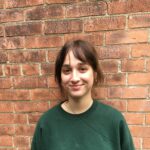 Willa Baigelman, Class of 2018
Willa Baigelman, Class of 2018
 Bianca DePietro, Class of 2019 Bianca is a research assistant within the Department of Psychiatry at Washington University School of Medicine. She works on intervention, dissemination, and prevention research to increase access to care for, and to reduce the prevalence of, eating and weight disorders.
Bianca DePietro, Class of 2019 Bianca is a research assistant within the Department of Psychiatry at Washington University School of Medicine. She works on intervention, dissemination, and prevention research to increase access to care for, and to reduce the prevalence of, eating and weight disorders.
Bianca says I really enjoyed being a part of the Social Psychology Lab. Designing and implementing our study was certainly the highlight of my experience, and further solidified my interest in research. I will always be appreciative of the great, hands-on experience I gained doing research in the lab!
Clara Griffin, Class of 2020.
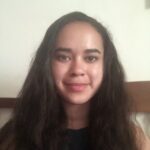 Dayveliz Hernandez Muztafa, Class of 2021. Dayveliz is a moderated undergraduate student pursing a Psychology Degree. She is exploring all opportunities that fall on her path to get a better understanding of what impact she may want to leave in the world.
Dayveliz Hernandez Muztafa, Class of 2021. Dayveliz is a moderated undergraduate student pursing a Psychology Degree. She is exploring all opportunities that fall on her path to get a better understanding of what impact she may want to leave in the world.
Dayveliz says being in Kristin’s lab was one of the most challenging and fulfilling experience I’ve ever had. Starting that fall semester was intimidating because I had no idea what doing research meant, but that was the point! By the end of school year I learned so much from everyone and had no regrets that I decided to challenge myself with the hands-on experience.
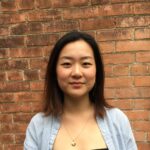 Tong Su, Class of 2019
Tong Su, Class of 2019
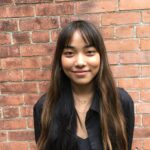 Mady Thuyein, Class of 2019
Mady Thuyein, Class of 2019
Lab Alumni
Below are profiles of some of the over 70 students who have worked in Bard’s Social Psychology lab or completed their senior projects with Kristin.
 Samantha Baca, Class of 2012 After Bard, Sam worked as a research assistant at New York State’s Psychiatric Institute within the Anxiety Disorders clinic and was a teacher at Barnard College’s Toddler Center where she worked with toddlers and parents, and supervised undergraduates. She is currently in her third year as a doctoral candidate at Pace University’s School-Clinical Child Psychology PsyD program in New York, where she interns at an elementary school, gaining training in different therapeutic modalities, and forming herself psychodynamically.
Samantha Baca, Class of 2012 After Bard, Sam worked as a research assistant at New York State’s Psychiatric Institute within the Anxiety Disorders clinic and was a teacher at Barnard College’s Toddler Center where she worked with toddlers and parents, and supervised undergraduates. She is currently in her third year as a doctoral candidate at Pace University’s School-Clinical Child Psychology PsyD program in New York, where she interns at an elementary school, gaining training in different therapeutic modalities, and forming herself psychodynamically.
Sam says Joining Kristin’s lab gave me a new perspective and respect for research. I did not have a strong interest in pursuing research until the social psych lab. It was fun! Without it, I would have never sought out my first RA position out of Bard, which set me on the doctoral track I am currently on!
 Stephanie Barrett, Class of 2012 Stephanie worked in college admissions for her first three years out of college, in fact she recruited for Bard! Stephanie then returned home to Jamaica and started work at an independent educational company as a college counselor. She now heads the tutoring and program center at the company, provides college counseling at many Jamaican schools, teaches prep classes for many standardized tests (SAT,ACT, PSAT and SSAT), and tutors students one on one in English. She’s loving it!
Stephanie Barrett, Class of 2012 Stephanie worked in college admissions for her first three years out of college, in fact she recruited for Bard! Stephanie then returned home to Jamaica and started work at an independent educational company as a college counselor. She now heads the tutoring and program center at the company, provides college counseling at many Jamaican schools, teaches prep classes for many standardized tests (SAT,ACT, PSAT and SSAT), and tutors students one on one in English. She’s loving it!
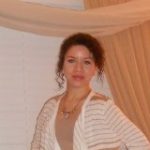 Chelsea Beckford, 2012 Chelsea is part of the Morningstar Development Program and is working as a client service representative, where she helps clients navigate different Morningstar products from a technical perspective. She is also working with the behavioral team and researching implicit biases in financial advisors. The goal of the project is to bring awareness about implicit biases to financial advisors.
Chelsea Beckford, 2012 Chelsea is part of the Morningstar Development Program and is working as a client service representative, where she helps clients navigate different Morningstar products from a technical perspective. She is also working with the behavioral team and researching implicit biases in financial advisors. The goal of the project is to bring awareness about implicit biases to financial advisors.
Chelsea says The most memorable part of my senior project experience was running my experiment. It was a great experience to have the freedom to create my own experiment, gather the data and analyze it.
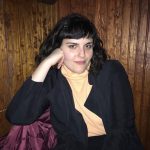 Rebecca Bell-Gurwitz, Class of 2013 After graduation, Becca moved to New York City, where she worked in various jobs and eventually landed in an MSW program at Columbia University. At Columbia, she was accepted as part of the 16 person cohort in Dr. Andre Ivanoff’s intensive Dialectical Behavior Therapy (DBT) training program and lab, which is the only program in the country the trains master’s level social work students in DBT. Dr. Ivanoff’s program at Columbia, students are involved in conducting research on DBT’s efficacy for treating suicidality, Borderline Personality Disorder, and its fit for use with incarcerated populations. While in the program, Becca worked at NYU as a clinician helping with the development of a college-level DBT program for their counseling and health center, looking at the efficacy of DBT groups in college settings. Becca now lives in Portland where she works at the DBT Institute as a DBT therapist. At Portland DBT there are many opportunities to participate in research, due to Dr. Dimeff’s active involvement in the DBT research community.
Rebecca Bell-Gurwitz, Class of 2013 After graduation, Becca moved to New York City, where she worked in various jobs and eventually landed in an MSW program at Columbia University. At Columbia, she was accepted as part of the 16 person cohort in Dr. Andre Ivanoff’s intensive Dialectical Behavior Therapy (DBT) training program and lab, which is the only program in the country the trains master’s level social work students in DBT. Dr. Ivanoff’s program at Columbia, students are involved in conducting research on DBT’s efficacy for treating suicidality, Borderline Personality Disorder, and its fit for use with incarcerated populations. While in the program, Becca worked at NYU as a clinician helping with the development of a college-level DBT program for their counseling and health center, looking at the efficacy of DBT groups in college settings. Becca now lives in Portland where she works at the DBT Institute as a DBT therapist. At Portland DBT there are many opportunities to participate in research, due to Dr. Dimeff’s active involvement in the DBT research community.
Becca says I remember the sense of community in being part of the lab and the opportunities available for us to think and act like professional researchers. Being a part of the lab really cemented my love of research, my identity as a scientist (I never thought it possible before), and eventually allowed me to realize the importance of applying research to practice, which is why I now seek out evidenced-based practices such as DBT in my own professional life as a clinician and researcher.
I also remember the IAT fondly, and programming an IAT with one of my cohort members from the lab. It was a challenging process, but creating the instrument and applying it, seeing how it worked internally and then was put to use to test implicit biases was extremely informative, and had me committed to the holistic process of research.
I remember how shocked I was to win the Psychology prize that year, and realized how my involvement in social psychology had affected my thought process as a clinician. I’m still super interested in the etiology and social conception of personality disorders and how emotion and empathy play into clinical conceptions and biases in research. My current work as a DBT clinician and budding DBT researcher is highly relevant to the work I did in my senior project, and that makes me super happy because I really wanted a job where I could apply my passions in a more concrete manner.
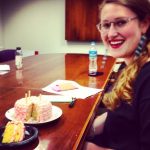 Josephine Curry, Class of 2011 For her first two years out of college, Josephine worked as a research assistant at a UPenn research lab. Afterwards, she worked as a residential counselor at a youth psychiatric facility and an ABA teacher at a preschool for children with autism. In September, she started Temple University’s Ed.S program in School Psychology.
Josephine Curry, Class of 2011 For her first two years out of college, Josephine worked as a research assistant at a UPenn research lab. Afterwards, she worked as a residential counselor at a youth psychiatric facility and an ABA teacher at a preschool for children with autism. In September, she started Temple University’s Ed.S program in School Psychology.
 Saumya Dadoo, Class of 2015 Saumya graduated in 2015 with a B.A in Human Rights with a concentration in Gender & Sexuality Studies. After graduation, she worked at a disability employment and education organisation called v-shesh based in Chennai, India. She was Program Coordinator at the Majlis Legal Centre, an NGO that provides litigation and socio-legal services to survivors of gender-based violence, based in Mumbai, India. She is currently pursuing her masters degree in Human Rights Law (M.A) at SOAS, University of London.
Saumya Dadoo, Class of 2015 Saumya graduated in 2015 with a B.A in Human Rights with a concentration in Gender & Sexuality Studies. After graduation, she worked at a disability employment and education organisation called v-shesh based in Chennai, India. She was Program Coordinator at the Majlis Legal Centre, an NGO that provides litigation and socio-legal services to survivors of gender-based violence, based in Mumbai, India. She is currently pursuing her masters degree in Human Rights Law (M.A) at SOAS, University of London.
Saumya says The Social Psychology Lab at Bard moulded not only my skills in psychological research and inquiry but also as an individual. I believe it is a unique environment that allows students to participate in the current trends and research happening in the field, which helps many people understand the perspectives and skills required to pursue a career in Psychological research. I also really enjoyed the collaborative nature of the Social Psychology Lab. I believe it allowed for real learning from peers and built long-term friendships. Even though I did not major in Psychology at Bard, my experience at the Lab remains as one of my most memorable experiences at Bard
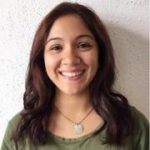 Moneika DiPierro, 2011 After graduation, Moneika worked as a research assistant at Mass General Hospital in Boston researching novel interventions for adult Major Depressive Disorder . She is currently enrolled in the Clinical Child Psychology PhD Program at the University of Kansas. Her dissertation work will look at factors that influence treatment motivation in incarcerated juvenile offenders who report symptoms of anxiety and depression.
Moneika DiPierro, 2011 After graduation, Moneika worked as a research assistant at Mass General Hospital in Boston researching novel interventions for adult Major Depressive Disorder . She is currently enrolled in the Clinical Child Psychology PhD Program at the University of Kansas. Her dissertation work will look at factors that influence treatment motivation in incarcerated juvenile offenders who report symptoms of anxiety and depression.
Moneika says I remember that the Social Psych lab taught me how to think of research ideas and was an overall good experience of learning to run a study through all the various stages. One of my most favorite part of lab meetings was when we would be presented with a research question and would go around the table and think of different studies we could design to answer that question. I know doing that activity several times in lab continues to benefit me in my graduate school career.
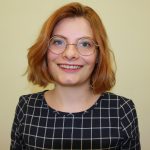 Marna Dunne, Class of 2016 After graduation, Marna moved to Madison, Wisconsin, to work as a lab manager for the Brauer Group Lab at the University of Wisconsin. The lab uses a social marketing approach to encourage pro-social and pro-diversity behaviors. Following a very cold Wisconsin winter, Marna moved to New York City. Currently, she works at Kingsborough Community College for their College Discovery program. This program helps students from underrepresented groups succeed in college by providing them financial, emotional, and academic support. In her position at the program, Marna tutors psychology, sociology, statistics, and English. She also does program and data analysis, to ensure that the program is running smoothly. In her spare time, Marna volunteers for the GreenHouse program on Rikers Island. GreenHouse is the nation’s first prison horticultural therapy program, and it reduces recidivism rates by 40%. Marna assists inmates in planting, tending, and harvesting plants, as well as educating students about the science behind gardening.
Marna Dunne, Class of 2016 After graduation, Marna moved to Madison, Wisconsin, to work as a lab manager for the Brauer Group Lab at the University of Wisconsin. The lab uses a social marketing approach to encourage pro-social and pro-diversity behaviors. Following a very cold Wisconsin winter, Marna moved to New York City. Currently, she works at Kingsborough Community College for their College Discovery program. This program helps students from underrepresented groups succeed in college by providing them financial, emotional, and academic support. In her position at the program, Marna tutors psychology, sociology, statistics, and English. She also does program and data analysis, to ensure that the program is running smoothly. In her spare time, Marna volunteers for the GreenHouse program on Rikers Island. GreenHouse is the nation’s first prison horticultural therapy program, and it reduces recidivism rates by 40%. Marna assists inmates in planting, tending, and harvesting plants, as well as educating students about the science behind gardening.
Marna Dunne says My fondest memory of the Social Psych lab was spending time playing with Legos in the name of science! As far as the senior project goes, I am most appreciative for the time management skills I gained, as well as the sense of accomplishment for a completed project. I’m also very much enjoying continuing working on the project.
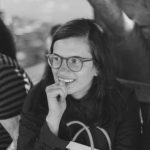 Maayan Eldar, 2016 Mayaan is a User Research and Quality Assurance Manager at Tinybop. Tinybop is a creative studio that develops apps that encourage kids to explore their world. The user research part of the job involves watching kids play with Tinybop apps and talking to the product team about what can be done to make the apps more usable, and the quality assurance part involves making sure that our apps are ready for the world!.
Maayan Eldar, 2016 Mayaan is a User Research and Quality Assurance Manager at Tinybop. Tinybop is a creative studio that develops apps that encourage kids to explore their world. The user research part of the job involves watching kids play with Tinybop apps and talking to the product team about what can be done to make the apps more usable, and the quality assurance part involves making sure that our apps are ready for the world!.
Nicole Fallon, Class of 2012 Nicole received her MSW from SUNY Albany. She is very active in her community – among her many contributions have been memberships on the boards of ReEntry Columbia and the Tivoli Free Library, service as a member of the ReEntry task force and psychiatric technician Mobile Crisis Assessment Team of Columbia-Greene Counties. She was assistant director at Greater Hudson Promise Neighborhood, where she interned and worked on grant writing. She also wrote grants for (and acted as program coordinator and jail visit facilitator) at Greater Hudson Initiative for Children of Incarcerated Parents. She also volunteers at the Hudson Valley chapter of the Alzheimer’s Association.
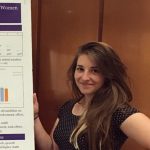 Eva Frishberg, Class of 2017 After graduation, Eva began an internship at the behavioral economics consulting design firm, Ideas42 in New York City, which does non-profit work and partners with different sectors of the government, other non-profits, and sometimes private companies in order to do social good through the modification and design of behavioral interventions. Eva was hired as an associate at the end of the internship, and is currently working on a project looking to decrease gun violence in New York City, partnering with the Mayor’s Office of Criminal Justice and the Office to Prevent Gun Violence. She also works with the New York City Housing Authority and the Mayor’s Office to increase quality in life and safety in housing developments across the city. Eva reports that “So far it’s been incredible, I do qualitative research, like interviewing experts in the field as well as residents and community members, quantitative research, analyzing data and making plans for collection, and am also learning how to write proposals, grants, and about government policy and bureaucracy. One of the coolest things right now is the exposure I get to criminal justice and understanding how police precincts and the mayor’s office interact and work with the community.”
Eva Frishberg, Class of 2017 After graduation, Eva began an internship at the behavioral economics consulting design firm, Ideas42 in New York City, which does non-profit work and partners with different sectors of the government, other non-profits, and sometimes private companies in order to do social good through the modification and design of behavioral interventions. Eva was hired as an associate at the end of the internship, and is currently working on a project looking to decrease gun violence in New York City, partnering with the Mayor’s Office of Criminal Justice and the Office to Prevent Gun Violence. She also works with the New York City Housing Authority and the Mayor’s Office to increase quality in life and safety in housing developments across the city. Eva reports that “So far it’s been incredible, I do qualitative research, like interviewing experts in the field as well as residents and community members, quantitative research, analyzing data and making plans for collection, and am also learning how to write proposals, grants, and about government policy and bureaucracy. One of the coolest things right now is the exposure I get to criminal justice and understanding how police precincts and the mayor’s office interact and work with the community.”
Eva says In the Social Psych lab, I remember the encouragement to have open and honest conversations about the strengths, weaknesses, and reflections on the papers that we read. I also recall incorporating current research into our own design strategy. The thing that helped me the most in terms of my current position is the iterations and consistent revisions of interview guides, experimental protocol, scripts, and the thoughtful process of data planning before jumping into analysis.
In terms of Senior Project, my experience was super helpful in the work I do now, in terms of self-motivating and making work blocks for my time specifically dedicated to research or writing. Another useful thing that I use now is keeping track of everything I read and putting it in designated places with correct citations, which saves a ton of time. The most important and useful thing I learned from Senior Project, by far, which is such a necessity in my current position, is original thinking and problem solving, and pushing myself to think about why things are a certain way, how I can test or determine if something is effective, and building off existing thought and research in order to ask even harder questions.
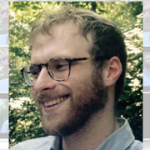 Doug Gazarian, 2013 After Bard, Doug worked as a research assistant at Rhode Island Hospital In Fall 2016, he began a Ph.D. program in clinical psychology at Clark University. The lab he works in studies how masculinity and gender socialization shape psychopathology and treatment-seeking. They are also interested in lay theories and stereotypes about diagnostic labels, which isn’t a far cry from Doug’s interests while in Kristin’s lab!
Doug Gazarian, 2013 After Bard, Doug worked as a research assistant at Rhode Island Hospital In Fall 2016, he began a Ph.D. program in clinical psychology at Clark University. The lab he works in studies how masculinity and gender socialization shape psychopathology and treatment-seeking. They are also interested in lay theories and stereotypes about diagnostic labels, which isn’t a far cry from Doug’s interests while in Kristin’s lab!
Doug says I remember some really good, critical conversations about current issues in social psychology, such as reproducibility, the validity of implicit priming, and unethical research practices. I also remember basically writing my entire senior project from one of the desktop computers that looks out onto the courtyard by Henderson/Root Cellar, etc.
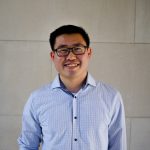 Jin X. Goh, Class of 2012 After Bard, Jin completed his Ph.D. in social and personality psychology at Northeastern University with Dr. Judith Hall. He is now a postdoctoral research associate at the University of Washington working with Dr. Cheryl Kaiser. Jin was inspired by his experience in the Bard Social Psych Lab, and continues to research prejudice and diversity.
Jin X. Goh, Class of 2012 After Bard, Jin completed his Ph.D. in social and personality psychology at Northeastern University with Dr. Judith Hall. He is now a postdoctoral research associate at the University of Washington working with Dr. Cheryl Kaiser. Jin was inspired by his experience in the Bard Social Psych Lab, and continues to research prejudice and diversity.
Jin says I remember going to the annual SPSP conference in my 2nd year at Bard, which was an incredibly rare opportunity for any undergraduate student. I’ve been going to that conference ever since and I always look forward to meeting current Bard students there during our yearly reunion dinner.
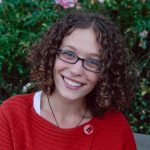 Elizabeth Goldfarb, Class of 2010 Elizabeth graduated from Bard in 2010 with a double major in psychology and creative writing. She then worked as a research assistant at Massachusetts General Hospital in the Psychiatry Academy for two years before joining Dr. Elizabeth Phelps’ lab at NYU to pursue a PhD in the Psychology: Cognition & Perception program. Her research focused on the influence of stress on different forms of learning and memory. Since receiving her PhD in May 2017, Elizabeth has been working as a postdoctoral fellow in the Neuroimaging Sciences Training Program at the Yale Stress Center with Dr. Rajita Sinha, exploring how stress pathophysiology and memory biases contribute to addiction.
Elizabeth Goldfarb, Class of 2010 Elizabeth graduated from Bard in 2010 with a double major in psychology and creative writing. She then worked as a research assistant at Massachusetts General Hospital in the Psychiatry Academy for two years before joining Dr. Elizabeth Phelps’ lab at NYU to pursue a PhD in the Psychology: Cognition & Perception program. Her research focused on the influence of stress on different forms of learning and memory. Since receiving her PhD in May 2017, Elizabeth has been working as a postdoctoral fellow in the Neuroimaging Sciences Training Program at the Yale Stress Center with Dr. Rajita Sinha, exploring how stress pathophysiology and memory biases contribute to addiction.
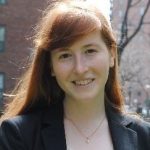 Diane Grayson, 2011 Diane is an Associate Editor of Test Prep!
Diane Grayson, 2011 Diane is an Associate Editor of Test Prep!
Diane says I loved how innovative everyone’s senior projects were, and I loved interacting with other students at the lab. I also really like hearing what students thought the experiments/ sprojs were really testing for/ were about.
Nicole Haaser, Class of 2013 Nicole worked as a research assistant and project coordinator at UCSF in the Emotion, Health and Psychophysiology Lab under Wendy Berry Mendes, PhD for the first year since graduating from Bard in 2013. She then moved on to her first industry role at Genentech as a case manager. Her main responsibilities as a case manager included educating, informing, and assisting patients and providers through the reimbursement process for his or her prescribed treatment with a Genentech product. Subsequently, Nicole moved into a Clinical Research Associate I (CRA I) role at a biotechnology startup company in Silicon Valley focused on immuno-oncology. Since joining the company in early 2015, she has recruited over 100 subjects for an observational study characterizing the immune response in the context of various diseases. She was key in developing a partnership with a Bay Area hospital network for an observational clinical study that has produced over 300 peripheral blood samples in the last year. Within the last year, she has also designed a new protocol for a partnered project focusing on the treatment of non-small cell lung cancer and developed an electronic case report form that has been adapted for use in multiple clinical studies sponsored by her company. Nicole currently resides in San Francisco, California and enjoys spending time outside along the coast and learning to play the cello.
Nicole says What Nicole recalls most of her contributions to the social psychology lab a summer filming and preparing video stimuli to be used for a project focused on women’s participation in the STEM fields. She and another student, Rebecca Bell-Gurwtiz, spent many afternoons filming students and editing footage for a set of videos they scripted together. Of her senior project experience, Nicole remembers working in the social psychology lab space to edit her senior project with friend and fellow student, Doug Gazarian. She remembers many long hours in various hidden parts of campus spent writing, revising and reviewing her work and the work of her peers.
Edward Twitchell Hall III, 2009 is co-directing a cooperative for teaching and implementing sustainable agriculture in NYC schools and in farms throughout the region.
 Lily Henry, 2016 Lily stayed at Bard for a year after graduation working as the Psychology program coordinator and is now beginning a career in film.
Lily Henry, 2016 Lily stayed at Bard for a year after graduation working as the Psychology program coordinator and is now beginning a career in film.
Lily says Learning about implicit stereotypes and just working so tightly with a small group was great. I loved creating (and scheduling…) the LEGO study!
Beth Hoffman Patalona, 2014 served with an AmeriCorps program called City Year in Providence, RI from 2014 -2015, followed by her Master’s in Social Work from NYU Silver School of Social Work.
Beth says I loved the balance between independent and collaborative research. We were a close knit group who taught each other a lot, and shared a lot of laughs, too!
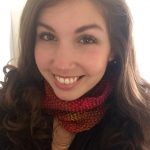 Lily Kaufmann, 2012 Right after graduation, Lily volunteered part-time as a research assistant at the New York State Psychiatric Institute (NYSPI) with the Depression Evaluation Services group. She then moved to Philadelphia and began working full-time as a research assistant at the Center for Interdisciplinary Research on Nicotine Addiction (CIRNA). There, she was promoted to research coordinator and oversaw several large, randomized control trials examining combinations of counseling and medication to aid in quit smoking attempts for smokers with HIV/AIDS, cancer, and major depression. Lily is currently a doctoral student in clinical psychology at American University, where my research focuses on cognitive factors underlying motivation to quit smoking.
Lily Kaufmann, 2012 Right after graduation, Lily volunteered part-time as a research assistant at the New York State Psychiatric Institute (NYSPI) with the Depression Evaluation Services group. She then moved to Philadelphia and began working full-time as a research assistant at the Center for Interdisciplinary Research on Nicotine Addiction (CIRNA). There, she was promoted to research coordinator and oversaw several large, randomized control trials examining combinations of counseling and medication to aid in quit smoking attempts for smokers with HIV/AIDS, cancer, and major depression. Lily is currently a doctoral student in clinical psychology at American University, where my research focuses on cognitive factors underlying motivation to quit smoking.
Lily says Getting exposure to real research articles, working with data, and writing up that data! Those were all great experiences to prepare for grad school. My SPROJ was more lit-review and did not include an actual experiment, but even designing a hypothetical experiment was useful, too.
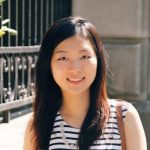 Mengyao Li, 2012 After graduation, Mengyao started her PhD studies at the Psychology of Peace and Violence Program at University of Massachusetts Amherst, where she conducted research on intergroup conflicts, reconciliation, and international justice mechanisms. Currently, she is working as a postdoctoral research fellow at the Max Planck Institute for Research on Collective Goods in Bonn, Germany in a group that investigates the psychological processes of bystander intervention against moral violations (a.k.a., moral courage).
Mengyao Li, 2012 After graduation, Mengyao started her PhD studies at the Psychology of Peace and Violence Program at University of Massachusetts Amherst, where she conducted research on intergroup conflicts, reconciliation, and international justice mechanisms. Currently, she is working as a postdoctoral research fellow at the Max Planck Institute for Research on Collective Goods in Bonn, Germany in a group that investigates the psychological processes of bystander intervention against moral violations (a.k.a., moral courage).
Mengyao says Having spent three years in the Social Psych lab, I have so many wonderful memories! The always stimulating weekly meetings, designing and running my first lab study, and going to the SPSP conference every year with Kristin and my fellow lab mates… are only some of the highlights of my time in the lab. Those experiences prepared me tremendously for my academic journey after graduation, and helped shape my perspective on science and research practices in general. Being part of the Social Psych lab was not only academically, but also socially rewarding — it was where some of my closest and longest friendships started!
Patrick Lichtenstein, Class of 2015 Pat is currently pursuing his JD and MBA in Washington, D.C. Since leaving Bard, he has had the opportunity to work for the Department of the Treasury, the Attorney General, as well as the NCAA (National Collegiate Athletic Association). Pat looks forward to maintaining a career in business and sports law.
Christina Miliou Theocharaki, 2015 After graduating Christina stayed in New York City for a year, where she interned at Human Rights First . She then did translations for a labor union while also holding an assistantship position with a professor in Columbia. Christina received her MSc in International Relations Theory at London School of Economics and is now living in Lesvos, Greece, volunteering with a refugee camp.
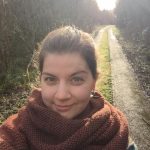 Elyse Neubauer, 2014 After graduation Elyse interned at Harvard’s Implicit Social Cognition lab (and actually re-connected with another Bard student there!) and worked at a Boston University management lab running participants in a study about changing implicit attitudes through a video game. Her first “full time post college” job was at Boston Children’s Hospital as the Research Administrative Assistant for the Division of Developmental Medicine. After two years Elyse went WWOOFING. Now she’s back home and applying to graduate schools and figuring out what’s next 🙂
Elyse Neubauer, 2014 After graduation Elyse interned at Harvard’s Implicit Social Cognition lab (and actually re-connected with another Bard student there!) and worked at a Boston University management lab running participants in a study about changing implicit attitudes through a video game. Her first “full time post college” job was at Boston Children’s Hospital as the Research Administrative Assistant for the Division of Developmental Medicine. After two years Elyse went WWOOFING. Now she’s back home and applying to graduate schools and figuring out what’s next 🙂
Elyse says The conversations I got to have in the Social Psych lab were some of the most interesting and in depth convos I’ve had. It was great to get into the gritty details of a psych paper. It felt like I was reading articles, not just for a class, but in order to really understand it and find out how to be critical of it in an intelligent way. By discussing the articles, I felt I was able to start placing the scientific discoveries in a real life/ real world context. For example, a discussion about implicit bias leads to a discussion/thoughts about how to address our own bias and prejudice.
Sarah O’Neill, Class of 2010 Sarah moved to Boston shortly after graduating, where she worked for two years as an academic and surgical coordinator for a urologic surgeon at Brigham & Women’s Hospital. At the start of 2013, she moved to the D.C. area, and began working as an executive assistant for a boutique Emerging Markets investment firm. In January 2016, she decided to leave the workforce to stay home full time with her then-newborn son. She is currently completing courses to get her CPC certification to work as a medical coder, and hopes to go to nursing school in a few years. She also does some freelance translation work in Spanish and French.
Sarah O’Neill I remember helping to set up the lab, and learning every possible detail about IATs. I also remember a lot of flailing whenever I needed to work with SPSS. I loved how we became kind of like a little family, and how the lab was where we would go to work on stuff that wasn’t even social psych-related because it was so cozy and quiet. Mostly, I just remember having some pretty amazing conversations with other students, and especially with Kristin.
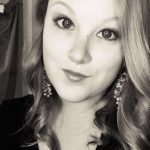 Anna Opatka, 2015 Anna works at Voice Charter School in Queens. NY She started out as a classroom assistant, and became a classroom teacher in September 2016 – she now teaches science to K-2nd grade.
Anna Opatka, 2015 Anna works at Voice Charter School in Queens. NY She started out as a classroom assistant, and became a classroom teacher in September 2016 – she now teaches science to K-2nd grade.
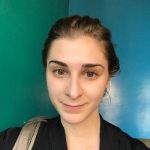 Laura Ovadia, Class of 2013 After Bard, Laura moved to New York City where she worked at Tiffany & Company doing communications. She then began work at Transit Wireless, a tech startup responsible for providing Wi-Fi and cellular connectivity in the NYC subway. At Transit Wireless, Laura did marketing and communications – everything from social media to strategic development to press conferences. Laura currently lives in Paris where she works at talent.io, a recruitment platform for software engineers. She is primarily responsible for branding and growth/acquisition marketing.
Laura Ovadia, Class of 2013 After Bard, Laura moved to New York City where she worked at Tiffany & Company doing communications. She then began work at Transit Wireless, a tech startup responsible for providing Wi-Fi and cellular connectivity in the NYC subway. At Transit Wireless, Laura did marketing and communications – everything from social media to strategic development to press conferences. Laura currently lives in Paris where she works at talent.io, a recruitment platform for software engineers. She is primarily responsible for branding and growth/acquisition marketing.
Laura says I loved the collaboration. I chose to work in Marketing because it was a great combination of analytical research and creative output. You’re taking data and dissecting it – you may see one thing, while your colleague may see another. I really appreciated how one article or topic could be seen from different viewpoints.
Matthew Phelps, Class of 2017 After graduating from Bard, Matt is currently attending the University of Maryland School of Social Work and is interning at Arundel Elementary-Middle School in Baltimore, Maryland.
Matthew Phelps says The things I remember most about the Social Psych lab are attending the SPSP conference in San Diego, coming up with methodologies, and designing surveys for studies.
 Feiyang Qian, 2017 After graduating from Bard, Nicole took a gap year to prepare to apply to graduate school in compute science. She is currently working as a computer programmer intern in China.
Feiyang Qian, 2017 After graduating from Bard, Nicole took a gap year to prepare to apply to graduate school in compute science. She is currently working as a computer programmer intern in China.
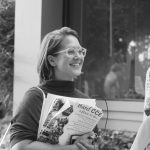 Siira Rieschl, 2015 After graduation, Siira joined Bard’s Center for Civic Engagement (CCE) as its the Science Outreach Coordinator and Intern/Volunteer manager. In addition to helping facilitate general programs at the CCE, Siira ran the science outreach initiative. She’s now working at the CCE as an advisor for the science programming and facilitating Bringing Theory to Practice, a mentorship program through Inclusive Excellence and Bard Educational Opportunity Programs (BEOP) geared towards underrepresented students–such as women, students of color, and first generation students–in the Science, Mathematics, and Computing division.
Siira Rieschl, 2015 After graduation, Siira joined Bard’s Center for Civic Engagement (CCE) as its the Science Outreach Coordinator and Intern/Volunteer manager. In addition to helping facilitate general programs at the CCE, Siira ran the science outreach initiative. She’s now working at the CCE as an advisor for the science programming and facilitating Bringing Theory to Practice, a mentorship program through Inclusive Excellence and Bard Educational Opportunity Programs (BEOP) geared towards underrepresented students–such as women, students of color, and first generation students–in the Science, Mathematics, and Computing division.
Siira says Much of what I do now stems from not only the subjects we discussed and studied in lab, but also how the structure of lab allowed us to think critically about how to approach a problem and work with others. Lab discussion was always lively. Working as a team to break down a complicated article or troubleshoot a problem definitely worked out my brain in a completely different, and often refreshing, way than any other classes. Social Psych Lab definitely lit a fire under me! Learning more and more about the gender gap in STEM subjects might have made me a bit mad, a bit sad, but it definitely made me excited about the solutions.
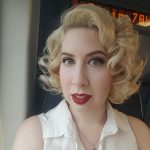 Rose Siuta, 2013 After graduation, Rose volunteered with the National Eating Disorders Association in NYC for a little over a year. She then earned her Masters degree in Industrial-Organizational Psychology from Fairleigh Dickinson University with a Masters thesis that observed the influence of sexist interactions on third-party judgments of promotion and pay allocation. Rose is currently in her first year of a Ph.D program in I-O psychology at Texas A&M University where she is researching discrimination and diversity in the workplace. Bard’s Social Psych lab has certainly influenced her path, from fostering a passion for academia and the research process to directly influencing her interests in self-esteem threat and bias in the workplace.
Rose Siuta, 2013 After graduation, Rose volunteered with the National Eating Disorders Association in NYC for a little over a year. She then earned her Masters degree in Industrial-Organizational Psychology from Fairleigh Dickinson University with a Masters thesis that observed the influence of sexist interactions on third-party judgments of promotion and pay allocation. Rose is currently in her first year of a Ph.D program in I-O psychology at Texas A&M University where she is researching discrimination and diversity in the workplace. Bard’s Social Psych lab has certainly influenced her path, from fostering a passion for academia and the research process to directly influencing her interests in self-esteem threat and bias in the workplace.
Rose says The thing that I remember the most about the Social Psych lab was the amazing community of future researchers that I was able to join. I valued my lab partner and enjoyed working and laughing with her and the rest of the Social Psych team. This lab certainly solidified my passion for research and planted the seeds which have become my current research interests. I remember running IAT experiments in the lab and enjoying the interactions that I was able to have with participants, particularly introducing freshman to the research experience.
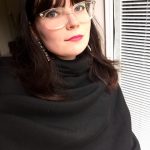
Tina Wack, Class of 2015 Tina currently works as a content manager for an advertising agency outside of Philadelphia. They work for a variety of pharmaceutical and healthcare brands and Tina copyedits their pieces, manages style guides, and upkeeps claims grids which contain all their clinical studies and primary materials for messaging about their products. It’s an interesting mesh of writing and science!
Eli Strauss, 2011 Since graduating from Bard, Eli worked for a few years before enrolling into a MSSW program at the Columbia University School of Social Work where he focused on criminal justice reform and working with adolescents. He interned at the Center for Community Alternatives and at the Center for Justice at Columbia University where he helped create, implement, refine, and evaluate educational programs at Rikers Island. He now works at Graham Windham Services for Children and Families in the Bronx as an educational and vocational coach for adolescents and young adults.
 Sophia Sutcliffe, 2015 After graduation, Sophia worked for an education opportunity program at Brooklyn’s Community College, where she tutored and worked to implement technology to improve program communication and operations (always designing through a behavioral lens!) She is currently at a social policy research institute, MDRC, with their Center for Applied Behavioral Science. They work with public and nonprofit organizations to design and evaluate human-centered interventions; using what we know about people to improve the efficacy and efficiency of social and education programs.
Sophia Sutcliffe, 2015 After graduation, Sophia worked for an education opportunity program at Brooklyn’s Community College, where she tutored and worked to implement technology to improve program communication and operations (always designing through a behavioral lens!) She is currently at a social policy research institute, MDRC, with their Center for Applied Behavioral Science. They work with public and nonprofit organizations to design and evaluate human-centered interventions; using what we know about people to improve the efficacy and efficiency of social and education programs.
Sophia says The discussions we had during lab were always so rich. I am so grateful for the quality of education and critical discourse offered at Bard, and nowhere was that more readily available than the intimate group in the Social Psych lab. Senior project offered the opportunity to delve into the field of behavioral economics, and really set the stage for the work I do now.
 Joshua Velette, Class of 2017
Joshua Velette, Class of 2017
Josh says What I remember most about the Social Psych lab is how different the work and the interactions were compared to regular classes. The work has more hands-on and although it seemed like a more informal experience than the one I got in the classroom, it went a long way in terms of preparing me for Senior Project (all the reading, presenting, developing questionnaires and other study materials).
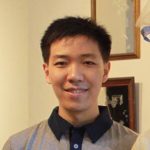 Chris Liu, Class of 2014 Chris participated in the 3-2 program studying Psychology, Math at Bard and Financial Engineering at Columbia. After graduation, he joined Citigroup as a full-time analyst at the Management Development Program, working in four groups across wholesale, retail and private banking. He is now an Assistant Vice President at the Investment Finance Group at Citi Private Bank, helping to structure securities-backed financing transactions for high net worth clients. In his free time, he invests in stocks, and writes computer programs to trade currencies.
Chris Liu, Class of 2014 Chris participated in the 3-2 program studying Psychology, Math at Bard and Financial Engineering at Columbia. After graduation, he joined Citigroup as a full-time analyst at the Management Development Program, working in four groups across wholesale, retail and private banking. He is now an Assistant Vice President at the Investment Finance Group at Citi Private Bank, helping to structure securities-backed financing transactions for high net worth clients. In his free time, he invests in stocks, and writes computer programs to trade currencies.
Chris says I remember discussing papers and ideas around the table in the lab, which just perfectly held 7-8 people at that time. Remember conducting an experiment on Campus at the beginning of a summer. Tried very hard to find participants and eventually got about 10-20 samples. Felt very proud.
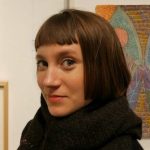 Sarah Walser, 2014 After graduating from Bard, worked at the University of Pennsylvania as a clinical research coordinator on both qualitative and quantitative research exploring the ethical, legal, and social implications of genomic medicine. Sarah also concurrently completed a pre-health post-baccalaureate at Penn. She is currently a medical student at Penn State University College of Medicine – her program is based on small discussion/ research based classes built upon cases encountered in clinic. She writes “The curriculum feels like what I would imagine Bard’s medical school would be if they had one.”
Sarah Walser, 2014 After graduating from Bard, worked at the University of Pennsylvania as a clinical research coordinator on both qualitative and quantitative research exploring the ethical, legal, and social implications of genomic medicine. Sarah also concurrently completed a pre-health post-baccalaureate at Penn. She is currently a medical student at Penn State University College of Medicine – her program is based on small discussion/ research based classes built upon cases encountered in clinic. She writes “The curriculum feels like what I would imagine Bard’s medical school would be if they had one.”
Sarah says I remember lab being a space for my peers and me to take a critical and thoughtful look at current research. I really enjoyed the collaborative and supportive spirit of lab. It helped shape my confidence and identity as a scientist and played an important role in my desire to pursue work in research after graduation.
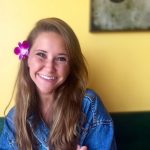 Sage Warner, 2017 Sage is currently working for for Planned Parenthood Federation of American in Washington, D.C. Throughout her time there, she has worked in the Electoral Campaigns division, using her skills in research, statistics, and data to ensure that healthcare stays affordable and accessible for low-income communities, and that services like mental healthcare and reproductive healthcare are guaranteed.
Sage Warner, 2017 Sage is currently working for for Planned Parenthood Federation of American in Washington, D.C. Throughout her time there, she has worked in the Electoral Campaigns division, using her skills in research, statistics, and data to ensure that healthcare stays affordable and accessible for low-income communities, and that services like mental healthcare and reproductive healthcare are guaranteed.
Sage says I switched my project half way through the year, because I realized I wanted my senior project to symbolize a culmination of my career and involvement at Bard. After my four years as a counselor for BRAVE at Bard, I wanted more than anything to make my project embody the focus of sexual assault prevention. Because of Bard Psychology Department’s science and mathematics focus, I knew I could use my research and statistical skills to build an evidence-based and testable sexual assault prevention program. I remember my nights and weekends spent in the library were spent in a relentless passion with the connections I was making between research, data, and the need for social change for survivors. I know that I can one day form this program, because I have the evidence to back it up. For a topic that is so often overlooked by leaders in the political and educational world, I can offer an extra incentive for them to invest in this program – the scientific data behind it. I would not have had that possibility without the scientific skills I learned in the Bard Psychology Department.
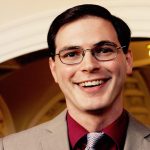 Ian Weiss, Class of 2012 Ian is a third-year student at the University of Pennsylvania Law School, where he is an Executive Editor for the Law Review, a member of the Supreme Court Clinic, and a research assistant to the Reporter (roughly the “lead author”) for the American Law Institute’s forthcoming Restatement of the Law of Liability Insurance.
Ian Weiss, Class of 2012 Ian is a third-year student at the University of Pennsylvania Law School, where he is an Executive Editor for the Law Review, a member of the Supreme Court Clinic, and a research assistant to the Reporter (roughly the “lead author”) for the American Law Institute’s forthcoming Restatement of the Law of Liability Insurance.
His Supreme Court Clinic has clients who are parties in Supreme Court cases. These are economically disadvantaged people, or others who cannot afford to hire expensive private attorneys. Under the close supervision of licensed attorneys, Ian helps draft and edit briefs submitted to the Supreme Court in their clients’ cases. After graduating in the Spring of 2018, Ian will be working for a large litigation firm in New York City, and then will be clerking for a judge in the United States District Court for the Eastern District of New York.
Ian says I remember evaluating drafts of manuscripts and research plans very carefully in order to identify possible opportunities for improvement, which helped me develop good habits for thinking critically as a part of a team. I also remember internalizing the seriousness of our responsibility to treat our participants well and to rigorously protect their rights. From my Senior Project, I remember having a ball exploring areas like primatology that I had never studied before.
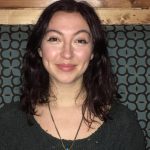 Helena Wippick, Class of 2016 Helena is currently the Lab Manager of the Social Cognitive Development Lab at Yale University, headed by Dr. Yarrow Dunham. She organizes the activities of the lab and studies the development of intergroup cognition and social categorization. Her research has largely focused on how children come to understand social hierarchy, and specifically how the groups they belong to relate to these hierarchies. Helena is also involved in some new and exciting projects exploring the replicability of ‘standard’ studies in social cognitive development in diverse populations within the USA, namely non-white & low SES, as well as designing an intervention with a school system that aims to reduce bias and facilitate transitions from elementary school to middle school. Outside of research her job responsibilities include hiring and coordinating undergraduate research assistants, organizing a summer internship program, and recruiting children, families, schools, and other community organizers to share in our research.
Helena Wippick, Class of 2016 Helena is currently the Lab Manager of the Social Cognitive Development Lab at Yale University, headed by Dr. Yarrow Dunham. She organizes the activities of the lab and studies the development of intergroup cognition and social categorization. Her research has largely focused on how children come to understand social hierarchy, and specifically how the groups they belong to relate to these hierarchies. Helena is also involved in some new and exciting projects exploring the replicability of ‘standard’ studies in social cognitive development in diverse populations within the USA, namely non-white & low SES, as well as designing an intervention with a school system that aims to reduce bias and facilitate transitions from elementary school to middle school. Outside of research her job responsibilities include hiring and coordinating undergraduate research assistants, organizing a summer internship program, and recruiting children, families, schools, and other community organizers to share in our research.
Helena says I loved our weekly discussions that we had in Kristin’s lab space. I remember our discussions were always so vibrant and exciting. I organize a reading group with my own RA’s inspired by that those I participated in as an undergrad and try to foster such an intellectually stimulation conversation. I love the autonomy we were always granted, I think that the experience prepared me well for my future endeavors.
 Yi (Jenny) Xiao, Class of 2010 After graduating from Bard in 2010, Jenny started her doctoral training in Social Psychology at New York University. She then received her MA in Psychology in 2013 and PhD in Social Psychology in 2017. During this time, she conducted research in the general area of studying social identities, group dynamics, and how they shape basic forms of perception and cognition. Jenny was a Visiting Assistant Professor in the Psychology Department at Macalester College in St Paul, Minnesota, during the 2016-2017 academic year, and is currently an Assistant Professor in the Psychology Department at Hofstra University in New York.
Yi (Jenny) Xiao, Class of 2010 After graduating from Bard in 2010, Jenny started her doctoral training in Social Psychology at New York University. She then received her MA in Psychology in 2013 and PhD in Social Psychology in 2017. During this time, she conducted research in the general area of studying social identities, group dynamics, and how they shape basic forms of perception and cognition. Jenny was a Visiting Assistant Professor in the Psychology Department at Macalester College in St Paul, Minnesota, during the 2016-2017 academic year, and is currently an Assistant Professor in the Psychology Department at Hofstra University in New York.
Jenny says I loved our lab meetings! This was before I started my independent senior project, and I remember always looking forward to our meeting as a lab group – it was both a lot of fun and very productive to work with Kristin and the entire lab group. These meetings also provided a lens into what graduate school life would look like.
